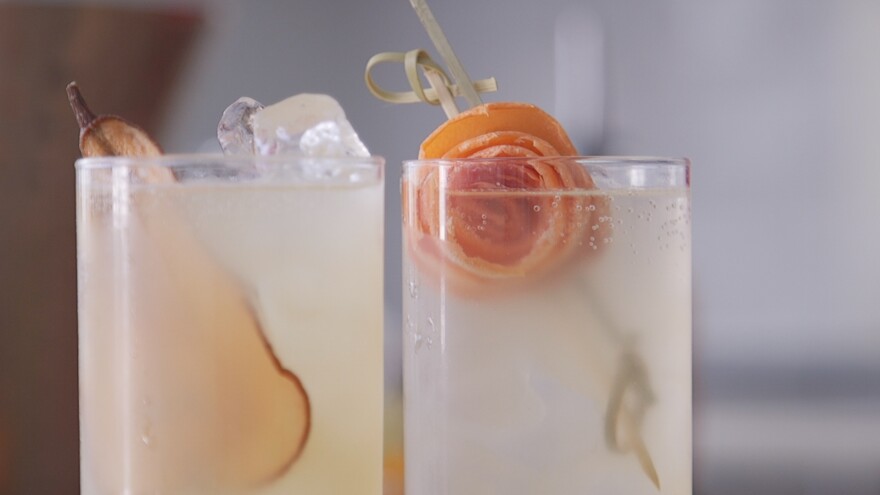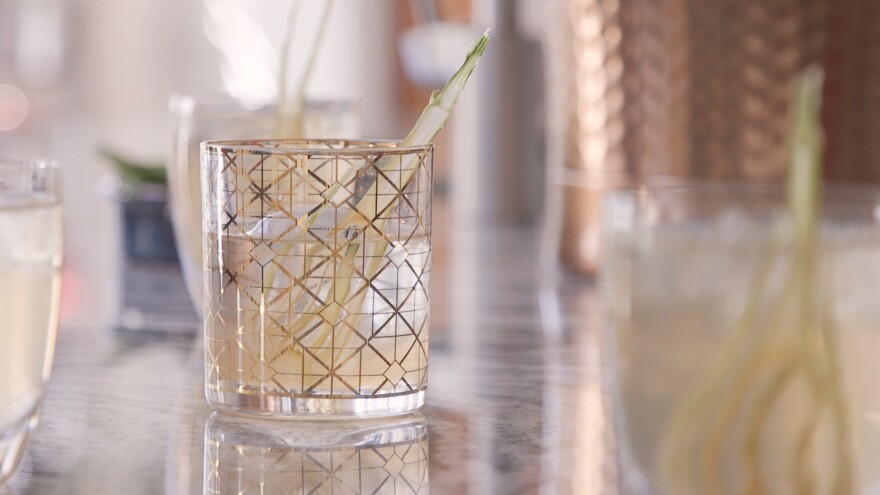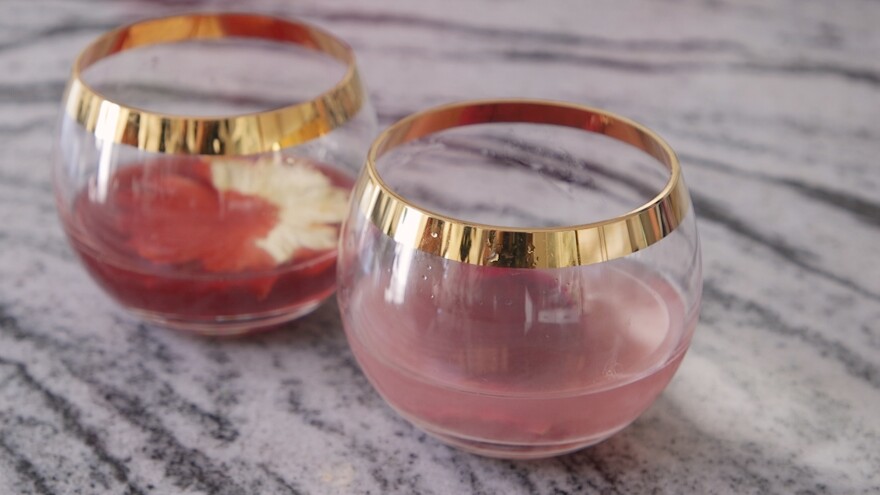Just because you're not drinking alcohol doesn't mean you have to stick to seltzer water. However you describe them — mocktails, low-ABV, zero-proof — a well-crafted nonalcoholic drink can make a night out a lot more pleasant if you're abstaining from alcohol.
And if you're hosting a party, having an intriguing booze-free option is often welcome — both by drinkers and nondrinkers. We offer you three options in the video below.
After doing a deep dive on how to take a break from drinking for dry January, Life Kit wanted to learn more about crafting beverages that can compete with traditional cocktails in complexity and taste.
We caught up with Nicole Hassoun and Thy Parra of Cocktail Curations, a startup that creates and curates craft cocktails for events, offers training in mixology and operates as a flavor lab. They share three of their zero-proof recipes below (a botanical water collins, bail fennel tonic water and a kombucha cocktail) that demonstrate some basic tenants of mixology.
Plus, they showed us how to smoke a glass! (You'll have to watch the video above for that.)
Mixology Takeaways
1. Complexity is key — a drink should satisfy different taste buds: salty, sweet, sour and bitter.
2. Shake it like you mean it — this traps air in the drink, giving it a lighter body.
3. Bubbles add dimension — when bubbles pop on your tongue, your brain equates that feeling with the drink being cold.
4. Drinking begins with aroma — before you sip, you smell. So doing things to increase a beverage's aroma (like smoking the glass) can make the drink appeal to more of your senses.
5. Cold drinks feel more viscous — shaking a drink with ice or serving it on the rocks can actually make the liquid feel thicker when you're drinking it.

Recipes
Botanical Water Collins
1.5 oz. botanical water*
1 oz. fresh lemon juice
1 oz. simple syrup (this can be regular simple or spiced up any way you choose!)
Pinch of sea salt
Sparkling water
*Botanical water: You can make a substitute for botanical water at home. Simply infuse filtered water with citrus, fresh herbs and botanicals in your fridge for at least eight hours, and then strain the solids out. This adds depth and complexity to any beverage.
In a shaker over ice, combine botanical water, lemon juice, simple syrup and salt. Shake until cold. Strain into a Collins glass over ice. Top with sparkling water.
If you want to finish off your drink with a garnish, thinly slice the fruit of your choice — pear and pineapple work well — brush the sliced fruit with simple syrup and bake on the lowest setting (usually 200 F) for 2-3 hours.

Basil Fennel Tonic Water
4 cups water
1/2 cup sugar
2 tsp. cinchona bark — Hassoun recommends buying organic "cut and sifted" cinchona bark online
1 tsp. citric acid
Pinch of salt
½ medium bulb fennel (chopped)
4-6 oz. fresh basil (leaves only)
Bring 4 cups of water to a boil. Add the citric acid, cinchona bark, sugar, salt and basil leaves in a pot and bring to a boil. Add the fennel and stir to combine. Continue to boil for 2 minutes and remove from heat. Allow to cool and strain using a fine mesh strainer. Store in a bottle of your choice in the fridge for up to two weeks.
A simple way to use this tonic:
Over ice, fill half of glass with tonic and top with sparkling water.

Kombucha cocktail
2 oz. of your favorite kombucha (note that kombucha has trace amounts of alcohol; ginger beer makes a good substitute if you're completely avoiding alcohol.)
1 oz. fresh pineapple juice (or any fresh juice you want to explore. Don't hesitate to get funky.)
Stir kombucha and juice together over ice and strain into your favorite glass. Garnish.
Life Kit would love to hear from you — if you've got a good life hack, leave us a voicemail at 202-216-9823 or email us at LifeKit@npr.org. Your tip could appear in an upcoming episode.
If you want more Life Kit, subscribe to our newsletter.
Copyright 2022 NPR. To see more, visit https://www.npr.org.




